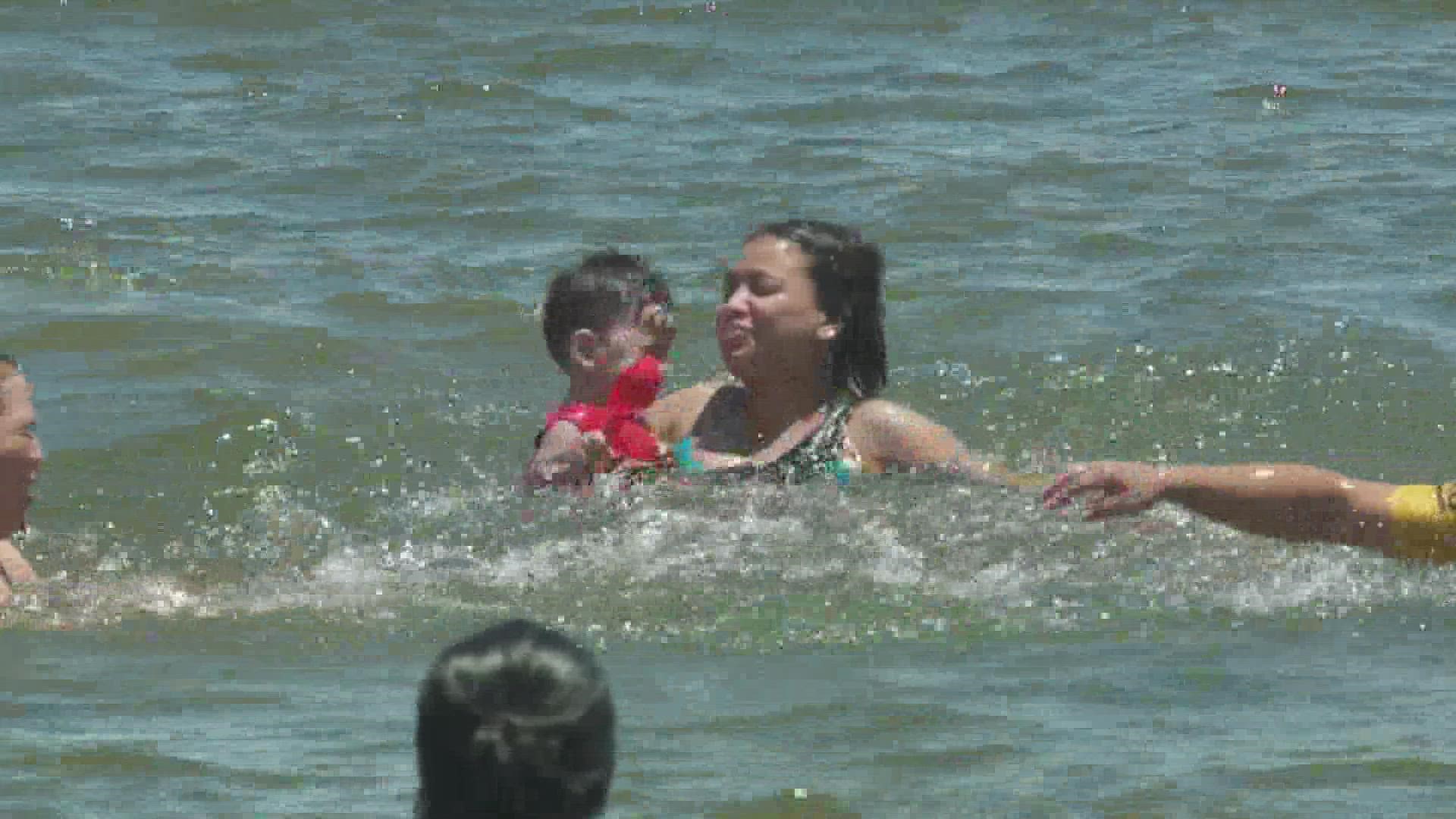NEW ORLEANS — In the last few weeks, we've seen the loss of several young people to drownings, including the three children in the Mississippi River.
And with the long Memorial Day weekend just ahead, doctors remind everyone that there are steps that need to be followed to prevent the rise in drownings they see every year at this time.
We see drownings usually where Bayou St. John empties into the lake. We also see drownings in the area under the Seabrook bridge and in local pools every summer.
In 2018, a distraught neighbor reacted to twins being pulled from a Metairie apartment complex pool. In 2009, a backyard pool party, with 40 people around, had a scare.
“He was white, not breathing, just water pouring out of him, his nose and his mouth. I just screamed out and I was like my little brother drowned,” said a relative we interviewed.
In 2017, a Florida mother travels to New Orleans for hyperbaric oxygen treatments to try to help her toddler son who has brain damage from a near drowning. Her older son found his little brother.
"And I will never ever forget the look on his face and all he said was, 'Mom,' but I knew something was horribly wrong," said the mother.
Every summer new drowning and near drowning stories make the day's news, but there are families left with a lifetime of heartache.
Doctors in the UMC emergency room and trauma center see the victims and families after the tragedy.
“Second part of May, every year, it's just an increase uptick, because there's more people on the water there's more people going to water, rivers,” said Dr. Peter DeBlieux, of LSUHSC and the Chief Experience Officer at UMC New Orleans.
He says prevention is key:
- Children must ask for permission before going near water
- Adults need to pay close attention at all times
- Always wear life jackets
- No using alcohol or drugs while watching children, or on boats and jet skies
- Never, ever go in the river
- Never dive in water where you can't see bottom
- You still need a life jacket that fits even if you can swim
“There's a false sense of protection for those who know how to swim, and might actually be very good swimmers and place themselves in harm’s way,” he said.
Dr. DeBlieux says it only takes 3-to-5 minutes for brain damage in a near drowning. He says if a child is not breathing, but has a heart beat, start mouth to mouth rescue breathing immediately. If there is no heart beat as well, start chest compressions. Now is a good time to learn CPR.
► Get breaking news from your neighborhood delivered directly to you by downloading the new FREE WWL-TV News app now in the IOS App Store or Google Play.

